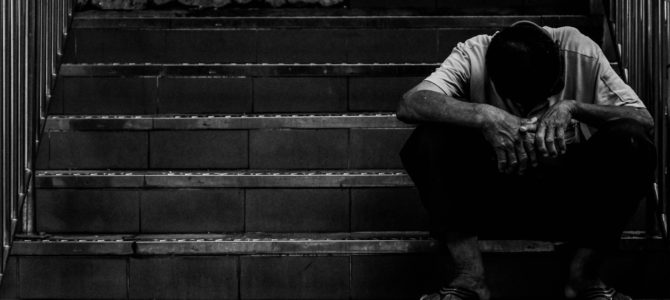One in four young adults aged 18-24 reported seriously contemplating suicide within the last 30 days, according to new data released last week from the Centers for Disease Control (CDC).
Sixteen percent of those aged 25-44 reported the same as restrictions in the name of COVID-19 implemented to slow its spread promise to stretch into the fall. More than 10 percent of all respondents in the 5,412 person survey said they had given serious consideration to the irreversible act.
The national suicide hotline is 1-800-273-8255. More resources are here.
Anxiety and substance abuse have spiked more than 40 percent among those who said they had suffered a mental or behavioral health condition as a direct result of the coronavirus response. More than 30 percent of those surveyed between June 24-30 reported symptoms of anxiety and depression.
There are online groups for substance abuse recovery. Find resources here, here, and here. Here’s what to do if someone you know is suicidal.
The results of the CDC survey remain largely consistent with Census data in May showing one in three Americans exhibited signs of clinical anxiety and depression while lockdowns exacerbated an existing mental health crisis by mandating isolation and bringing financial devastation throwing more than 40 million out of work in addition to being told to stay home or face added consequences.
As states brace for a second wave in cases this fall, the new data from the CDC should provide caution to policymakers pursuing a second lockdown or dragging out existing lockdowns.
“It’s a re-traumatization, really,” said east Tennessee therapist Allysen Efferson, who emphasized that the “ever-evolving criteria” for re-opening would only hammer at the nation’s already shattered psyche. The nation quickly went from “14 days to slow the spread” in March to “lock everything down until there’s a vaccine,” except for ignored calls for social distancing with a historic breakout of civil unrest.
Public health officials sent mixed messages by justifying mass protests for supposed racial justice while condemning church gatherings. In several states today, worship services of more than 50 people remain banned while mob anarchists burn down churches. One might argue society would be better served if the latter sat through a service or two.
“Faith is such an important component of mental health,” Efferson said, adding that bans on religious gatherings have “eliminated one of the greatest contributors to a person’s positive mental health.”
The research on links between religion and mental health conclusively supports Efferson’s claim.
A systemic review of the academic literature up to 2010 about spirituality and depression conducted by Duke University psychiatrist Harold Koenig found that nearly two-thirds of studies showed a significant association between religious involvement and less depression. About half found a significant reduction in anxiety.
A 2014 study by Columbia University psychologist Lisa Miller found that spirituality and religion can protect individuals from depression by thickening the brain cortex. In 2011, Miller had found that among adults who reported they place a high importance on religion or spirituality, 76 percent were less likely to suffer from a major depressive episode, even when their parents had depression, therefore raising their risk.
While some argue religious services can be replicated online, many churchgoers will say it’s not the same. Adequately meeting the spiritual needs of congregants desperate for hope requires in-person conversation and worship. As Federalist editor Kylee Zempel titled her article on the topic, “Churches Aren’t Avoiding Death By Keeping Their Doors Closed. They’re Ensuring It.”
“My concern,” Efferson said of looming lockdown orders, “is that we’re going to see more of the same but it will be more desperate than before. It’s a retraumatizing of these people who have already been through something traumatic… People are going to lose hope.”









